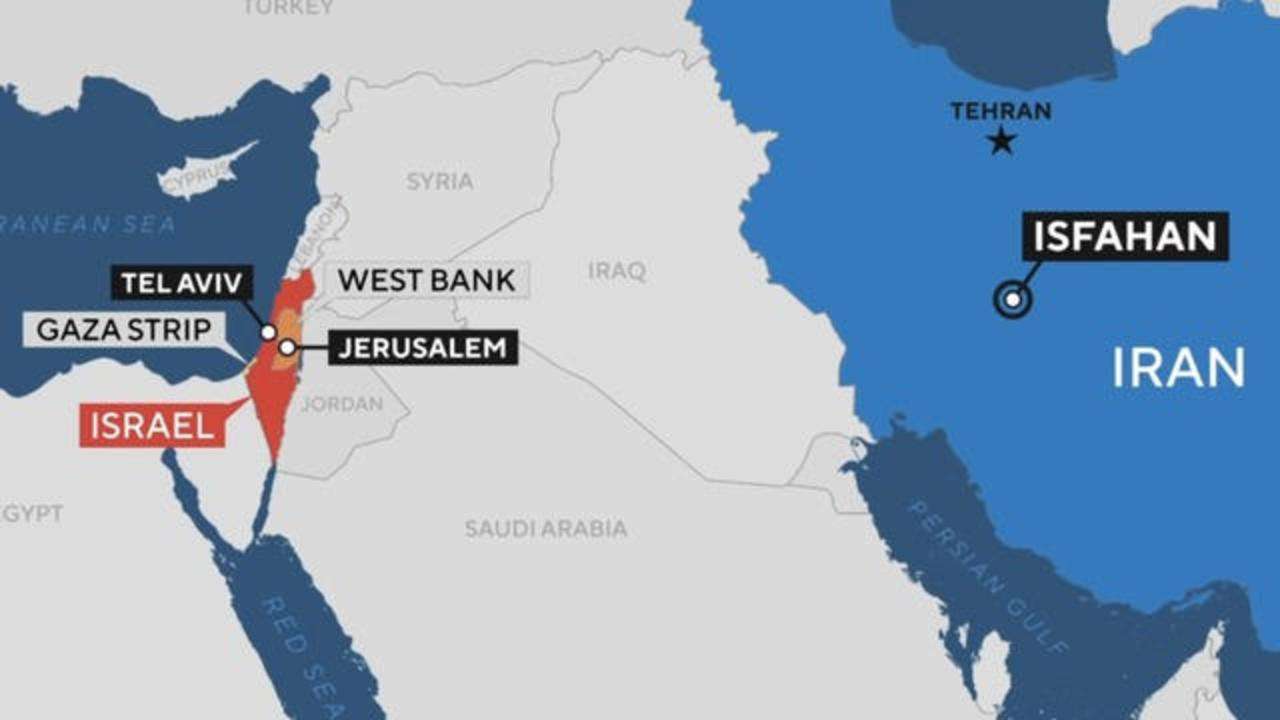Listeners:
Top listeners:
-
play_arrow
ERM Radio Top Music Radio
-
 play_arrow
play_arrow
Shawn Weigh Im Alive feat RN Stello Empire Radio Magazine
music_note
In the complex geopolitical landscape of the Middle East, tensions often simmer beneath the surface, threatening to erupt into open conflict at any moment. One such flashpoint emerged recently with the reported attack involving Israel and Iran. As the region once again finds itself on edge, it is essential to delve into the circumstances surrounding this incident and its potential implications for regional stability.

The reported attack, which took place in the early hours of [insert date], allegedly targeted Iranian military assets in [insert location]. Details remain murky, with conflicting reports from various sources clouding the true nature and extent of the attack. However, what is clear is that this incident has the potential to escalate an already volatile situation in the region.
Israel and Iran have long been at odds, with their animosity rooted in a myriad of factors, including ideological differences, geopolitical rivalries, and security concerns. Iran’s support for militant groups in the region, its pursuit of nuclear capabilities, and its hostile rhetoric towards Israel have fueled tensions and sparked numerous confrontations over the years.
For Israel, the prospect of Iran establishing a military presence near its borders poses a direct threat to its national security. The Israeli government has repeatedly expressed its determination to prevent Iran from gaining a foothold in neighboring countries, viewing such a development as an existential threat.
Against this backdrop of mutual distrust and hostility, the reported attack comes as a stark reminder of the potential for miscalculation and escalation in the region. With both Israel and Iran possessing formidable military capabilities and a willingness to defend their interests, any confrontation between the two adversaries carries the risk of spiraling out of control.

Moreover, the involvement of other regional players and international actors further complicates the situation. The United States, a staunch ally of Israel, has been vocal in its opposition to Iran’s regional ambitions and has imposed a series of sanctions aimed at curtailing Tehran’s influence. Conversely, Iran enjoys the support of countries such as Russia and China, which view it as a strategic partner in the region.
In the aftermath of the reported attack, diplomatic efforts to de-escalate tensions and prevent further violence are paramount. Dialogue and negotiation offer the best hope for resolving the underlying grievances between Israel and Iran and averting a full-blown conflict that could have devastating consequences for the region and beyond.
However, achieving lasting peace and stability in the Middle East remains a daunting challenge, with deep-seated rivalries and entrenched interests hindering progress at every turn. As such, the international community must remain vigilant and actively engage with all parties involved to prevent a further deterioration of the situation.
Ultimately, the reported attack involving Israel and Iran serves as a sobering reminder of the fragility of peace in the Middle East. It underscores the urgent need for concerted efforts to address the root causes of conflict and forge a path towards reconciliation and mutual coexistence. Only through dialogue, cooperation, and a commitment to peaceful resolution can the region hope to break free from the cycle of violence and build a future based on stability, prosperity, and mutual respect.
Written by: Empire Radio Magazine
Similar posts
Featured post

Latest posts
Upcoming shows

Navigating Tensions: Understanding the Israel and Iran Attack
12:00 am - 1:00 am

Navigating Tensions: Understanding the Israel and Iran Attack
12:00 am - 3:00 am

Navigating Tensions: Understanding the Israel and Iran Attack
12:00 am - 5:00 am
Top popular











